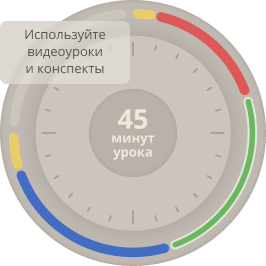
Conditional sentences
The conditional sentences are sometimes confusing for learners of English.
Watch out:
1) Which type of the conditional sentences is used?
2) Where is the if-clause (e.g. at the beginning or at the end of the conditional sentence)?
There are three types of the if-clauses.
type
I
condition
II
condition possible to fulfill
condition in theory possible to fulfill
III
condition not possible to fulfill (too late)

Form
type
if clause
I
main clause
Simple Present
II
will-future (or Modal + infinitive)
Simple Past
III
Past Perfect
would + infinitive *
would + have + past participle *
- We can substitute could or might for would ( should , may or must
are sometimes possible, too).
I would pass the exam.
I could pass the exam.
I might pass the exam.
I may pass the exam.
I should pass the exam.
I must pass the exam.

Examples (if-clause at the beginning)
type
if clause
I
main clause
If I study,
II
I will pass the exam.
If I studied,
III
I would pass the exam.
If I had studied,
I would have passed the exam.

Examples (if-clause at the end)
type
main clause
I
if-clause
I will pass the exam
II
if I study.
I would pass the exam
III
if I studied.
I would have passed the exam
if I had studied.

Examples (affirmative and negative sentences)
type
Examples
I
long forms
+
II
short/contracted forms
If I study, I will pass the exam.
-
+
If I study, I will not fail the exam. If I do not study, I will fail the exam.
If I study, I'll pass the exam.
If I study, I won't fail the exam. If I don't study, I'll fail the exam.
-
III
If I studied, I would pass the exam.
If I studied, I'd pass the exam.
If I studied, I would not fail the exam. If I did not study, I would fail the exam.
+
If I studied, I wouldn't fail the exam. If I didn't study, I'd fail the exam.
If I had studied, I would have passed the exam.
-
If I'd studied, I'd have passed the exam.
If I had studied, I would not have failed the exam. If I had not studied, I would have failed the exam.
If I'd studied, I wouldn't have failed the exam. If I hadn't studied, I'd have failed the exam.































